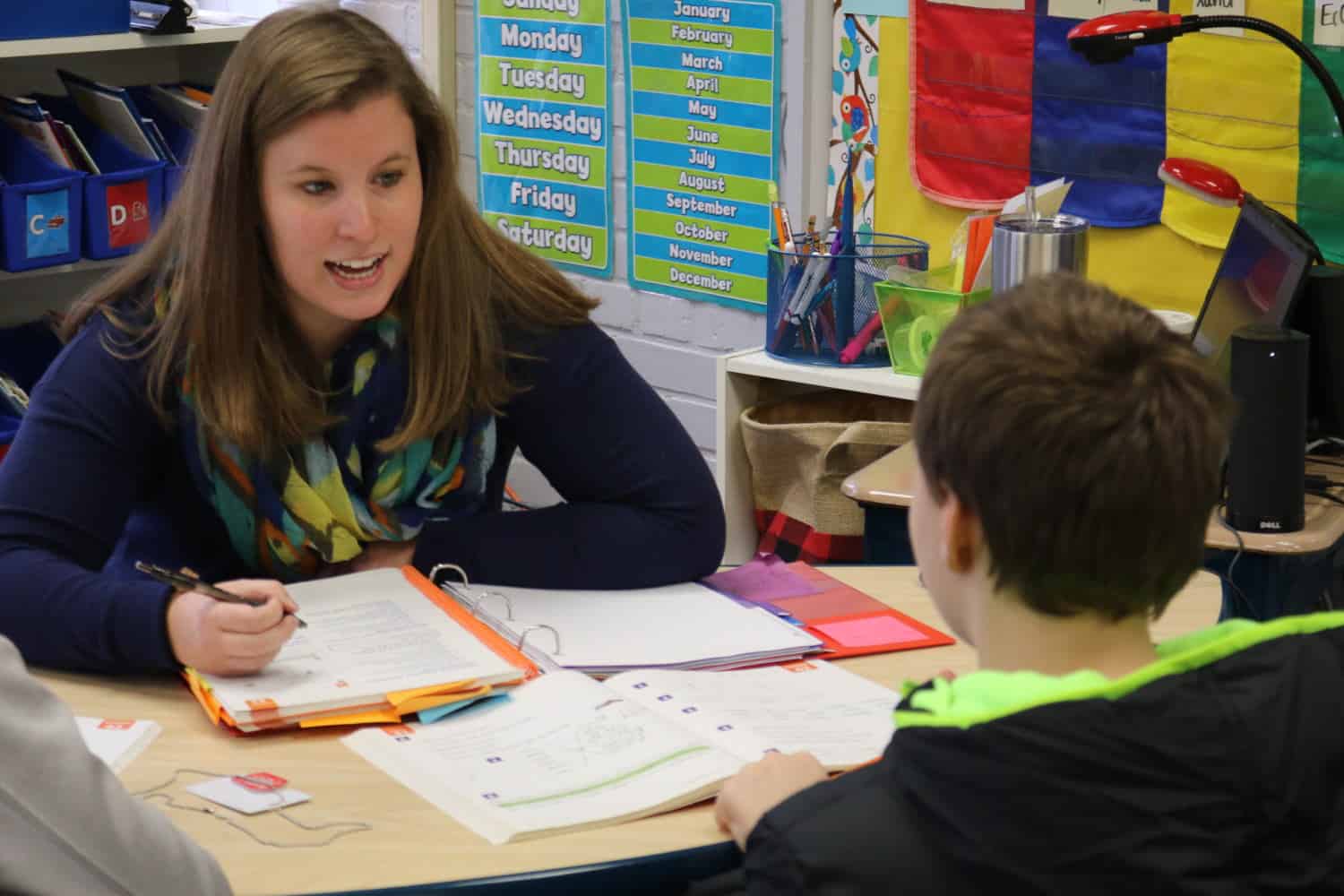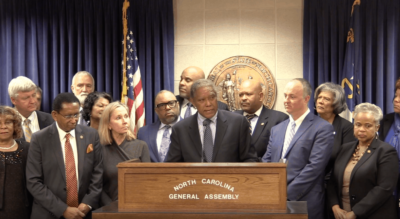When Julie White was still a student of education at Liberty University, she came across a kindergartner who was especially difficult during her student teaching.
“I was so frustrated with this child,” White, who now works as an exceptional children (EC) teacher at Franklinton Elementary School, said. “I was just ready to give up on him.”
But White points back to this moment when asked where her motivation comes from to teach EC.
“And then it dawned on me: If I give up on this student, then what hope does he have?” White said. “Who else is going to invest in him and pour into him?”
This is White’s third year teaching at Franklinton Elementary. White is dual-certified in regular education and special education, but said she wouldn’t want to teach anything other than EC.
“Ever since then, I’ve always had a passion for students who are overlooked, and who are tough, and don’t learn like everybody else,” she said.
In order to recruit EC teachers like White, Franklin County Public Schools is giving $4,000 in signing bonuses to new EC teachers and $3,000 in bonuses to current Franklin County employees interested in becoming EC teachers.
Windy Edwards, Franklin County’s EC and student services director, said she has had trouble finding EC teachers — individuals she said go above and beyond to reach the students that require the most attention and face some of the biggest challenges in learning. There are seven open EC positions in the county. And those are extra hard to fill mid-year, since education students are normally employed in the fall after graduating.
“The neediest children in the district need a highly-trained, qualified teacher — not a substitute,” Edwards said.
This initiative comes after a program funded in the state’s budget that is reimbursing the tuition of five Franklin County teacher assistants who are going back to school to earn a bachelor’s degree and special education certification. Each teacher will receive up to $4,500 per year.
After Franklin County’s HR department created an application for the program, 14 teachers applied. The program wasn’t specifically for EC, but every single applicant was looking to teach EC.
“I think that’s pretty telling,” said Patrick Glance, Franklin County Public Schools’ communications director.
“With these two programs together, we’re hoping to get an immediate benefit and a long-term benefit,” Edwards said.
Since Franklin County is less than an hour drive from Raleigh, it’s difficult to compete with the local supplements bigger counties can offer when recruiting talent. Edwards said her county isn’t alone in this struggle.
When EducationNC spoke with John Farrelly, the superintendent of Edgecombe County Schools, back in December, he said not being able to offer educators competitive local supplements is one of the biggest challenges rural and smaller counties face in North Carolina.
Edwards said she’s hoping this money will attract teachers who would otherwise go elsewhere for a bigger paycheck.
“It’s not all about the money,” Edwards said. “But when you have a family, the money has to be a factor. What we wanted to do was at least dangle the carrot of: ‘Hey, we want you to come. We want you to come and be happy. We want you to come and be trained. And we want you to come and be effective.'”
And once a teacher arrives, Edwards said the training and support the school system offers its teachers is unparalleled. Since it’s a small, community-oriented county, the support they provide is customized, she said.
There are five program specialists in Franklin County’s EC office and each has a specialty area. One is specifically dedicated to training new EC teachers. She works with them one-on-one — explaining the computer system, modeling in the new teacher’s classroom, and getting to know his or her individual needs.
“And training is not K-12,” Edwards said. “Training is specific to your area.”
Edwards said she knows every teacher in the district by first and last name. She knows teachers’ strengths and weaknesses and is ready to help. Often, Edwards said, math isn’t EC teachers’ strong point, so the EC office partnered with Curriculum and Instruction department to focus on improving EC teachers’ math skills.
“It’s not once a month, everybody comes into an auditorium and reads a PowerPoint slide,” she said. “It is customized in your classroom, to fit your needs.”
White agreed. She said she feels like the administration and county employees want her to grow. If she finds a professional development opportunity, White said the response is, “Yeah, go! Have fun, we’ll pay for a sub.”
White’s husband is in seminary school at nearby Southeastern Baptist Theological Seminary, which is what brought her to Franklin County. Edwards said this is common. The district lost two EC teachers since their husbands graduated from seminary school. Other than unavoidable life interferences, Edwards said most teachers don’t want to leave.
“Once we can just get them here, we don’t have trouble keeping them,” she said.



